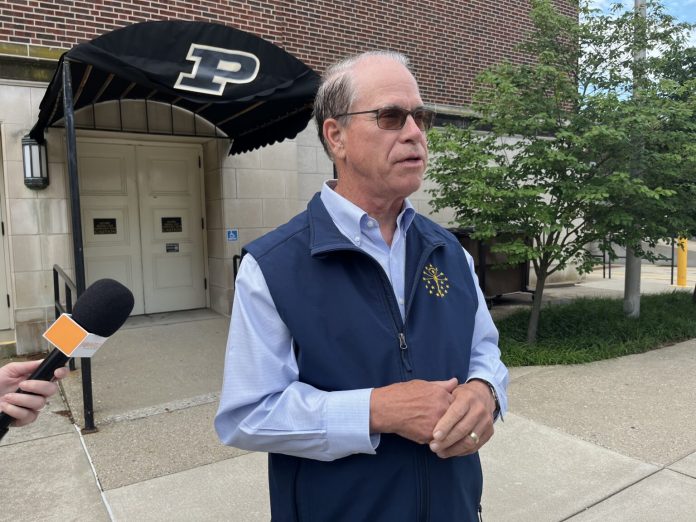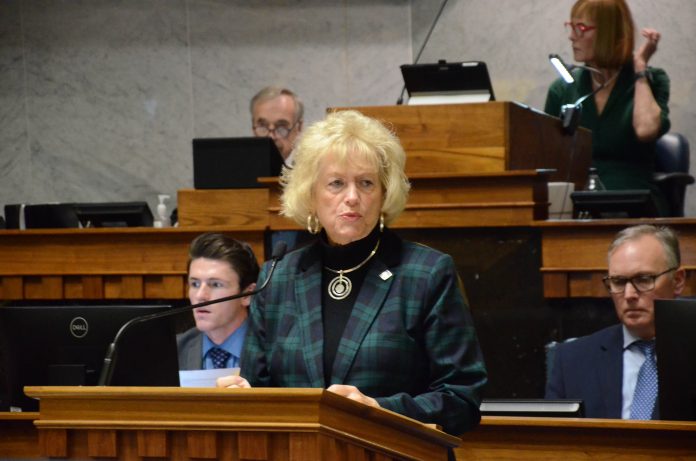DRAFT AGENDA
Vanderburgh County Board of Commissioners
June 24, 2025 – 9:30 a.m.
Room 301, Civic Center Complex
1. Call to Order
2. Attendance
3. Pledge of Allegiance
4. Action Items
A. Engineer
1. 2. 3. 4. Award Bid: VC25-05-01 “Replacement of Broadway Avenue Bridge #274” to
Ragle, Inc.
Change Order #8: Oak Hill Road Project
Time Extension Request: VC24-08-04 “Concrete Street Repairs”
Recommendation for Administrative Settlement: VC25-05-01 “Replacement of
Broadway Avenue Bridge #274”
i. Parcel 2 (ID 82-08-06-007-128.077-024) – Keith Rheinlander
B. Assessor
1. Contract with Pictometry International Corp d/b/a EagleView for Ortho Imagery
C. Burdette Park
1. Request to Purchase 2015 Ford Utility Truck from Uebelhor and Sons
D. Contract for Sale of Real Estate at Public Auction with Curran Miller Auction and Realty,
Inc. for Commissioners’ Online Property Auction
E. Resolution No. CO.R-06-25-005: A Resolution Adopting Burdette Park’s 2025 Master
Plan
5. Department Head Reports
6. New Business
A. Presentation of Evansville Sports Complex 2025 Cross County Course Master Plan
B. Discussion of County Agreements with Orion Renewable Energy Group LLC
C. Notice of Rescheduling July 15, 2025 Board of Commissioners Meeting and Drainage
Board Meeting to July 8, 2025
7. Old Business
8. Consent Items
A. Approval of June 10, 2025, Board of Commissioners Meeting Minutes
B. Approval of June 18, 2025 Executive Session Meeting Minutes
C. Employment Changes
D. Auditor
1. Claims Voucher Reports
i. June 9, 2025 – June 13, 2025
ii. June 16, 2025 – June 20, 2025
E. Commissioners
1. 2026 Budget Request
2. Appropriation Request
3. Transfer Requests
Drainage Board Immediately FollowingF. Engineer
1. Report and Claims
G. Treasurer
1. May 2025 Monthly Report
H. Substance Abuse Council
1. 2025 Comprehensive Community Plan – Local Drug Free Communities Fund
I. Quit Claim Deed – 1500 N Heidelbach Avenue: Parcel ID 82-06-20-0265-052.001-029
9. Public Comment
10. Rezonings
A. Final Reading of Rezoning Ordinance VC-7-2025
Petitioner: Elizabeth and Benjamin Lovell
Address: Part of 14400 Cemetery Road
Request: Change From Ag to CO-1 with UDC
B. Final Reading of Rezoning Ordinance VC-8-2025 As Amended
Petitioner: McCullough Capital LLC (James McCullough)
Address: 4220 and 4400 N Saint Joseph Avenue
Request: Change from C-4 with UDC to M-2 with Amended UDC
11. Adjournment
Drainage Board Immediately Following











